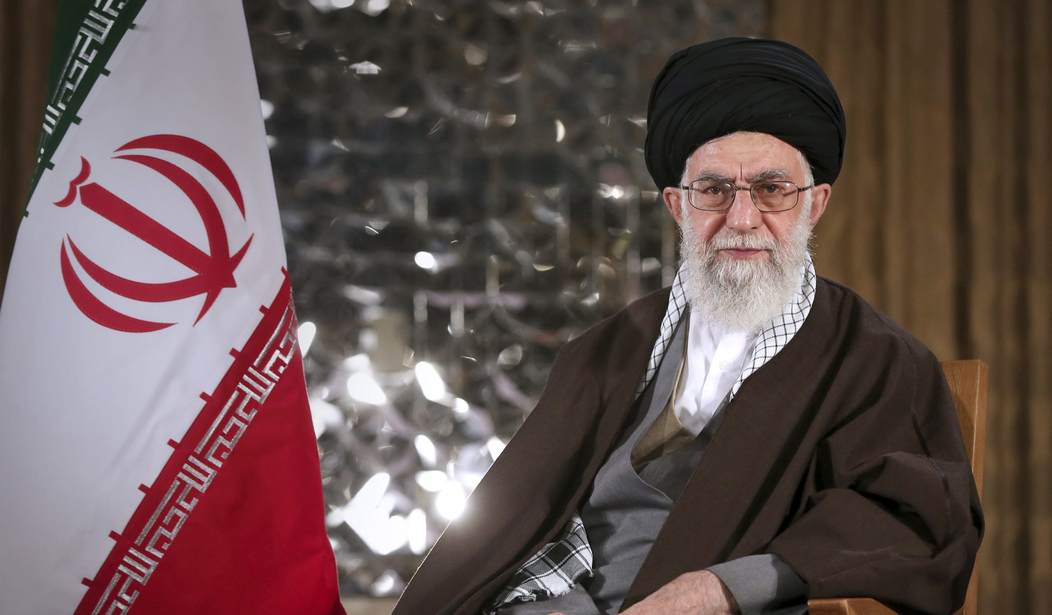WASHINGTON — A bill to extend Iran sanctions for 10 years will become law without President Obama’s signature after the White House said he would sign the legislation, while the secretary of State unnecessarily extended sanctions waivers to make Iran feel better.
The bill passed the House last month 419-1, with Rep. Tom Massie (R-Ky.) as the lone dissenting vote. It passed the Senate 99-0 at the beginning of December, with Sen. Bernie Sanders (I-Vt.) not voting.
The legislation has angered Iran, which calls it a violation of the P5+1 nuclear deal. The White House has defended the bill, saying it doesn’t violate the terms of the agreement, while also branding it superfluous because of snapback sanctions provisions.
“We have long said that extending the Iran Sanctions Act was unnecessary. And to the contrary, our focus has been on our key objective of the continued successful implementation of the Iran deal,” spokesman Eric Schultz told reporters Dec. 2. “We believe the Iran Sanctions Act extension is not necessary. But we also believe it won’t interfere with Iran deal, the Joint Comprehensive Plan of Action that was agreed upon between Iran and the P5+1.”
“So, I would expect the president to this piece of legislation,” Schultz added.
After midnight today, press secretary Josh Earnest reiterated in a statement “this administration has made clear that an extension of the Iran Sanctions Act, while unnecessary, is entirely consistent with our commitments in the Joint Comprehensive Plan of Action (JCPOA).”
“Consistent with this longstanding position, the extension of the Iran Sanctions Act is becoming law without the President’s signature. Extension of the Iran Sanctions Act, which was in place at the time the JCPOA was negotiated and remains so today, does not affect in any way our ability to fulfill our commitments in the JCPOA,” Earnest said. “The administration has, and continues to use, all of the necessary authorities to waive the relevant sanctions, to enforce those that are outside the scope of the JCPOA, and to reimpose sanctions if necessary in the event that Iran should fail to perform its commitments under the JCPOA.”
“Ensuring the continued implementation of the JCPOA is a top strategic objective for the United States and for our allies and partners around the world,” he continued. “The JCPOA makes our nation, and the entire world, safer by verifiably ensuring Iran cannot develop a nuclear weapon. As long as Iran adheres to its commitments under the JCPOA, we remain steadfastly committed to maintaining ours as well.”
Earnest said this week that that Iran’s announcement it would work on maritime nuclear vessels “does not run counter to the international agreement to prevent Iran from obtaining a nuclear weapon.”
Iran said that the United States violated the P5+1 deal through the long-term extension of the Iran Sanctions Act passed by Congress a couple of weeks ago, thus allowing them to act as if the deal is invalidated.
Iran Press TV reported that President Hassan Rouhani “ordered the Atomic Energy Organization of Iran (AEOI) to plan work on nuclear propulsion devices to be used in sea transport…as well as the fuel required for them.”
Rouhani wants a plan back on his desk within three months, the government-owned Iranian outlet said.
Earnest told reporters Tuesday it’s “not likely a coincidence” that Iran announced the move after Obama signed the sanctions bill.
Secretary of State John Kerry said today that it would have been no big deal if the Iran Sanctions Act expired because “we would continue to have all the authorities we need in place to address those issues.” Lawmakers argued that putting a sanctions regime back in place wouldn’t be as easy as the administration claimed.
“The Iran Sanctions Act was in place at the time the JCPOA was negotiated and has remained so throughout the deal’s implementation,” Kerry said. “The administration continues to have all of the necessary authorities to waive the relevant sanctions, with or without the extension of ISA. I will continue to exercise those authorities, as we committed to do in the JCPOA and have done since Implementation Day almost one year ago.”
Kerry said he “communicated to Iranian Foreign Minister [Javad] Zarif and to our P5+1 counterparts that while the existing waivers are unaffected by the extension of ISA’s sunset and do not need to be renewed at this time, I have done so today to ensure maximum clarity and convey to all stakeholders that the United States will continue to uphold our commitments under the JCPOA.”
“As I have said before, we are committed to doing our part to ensure that the JCPOA is working for all participants and that the Iranian people feel the appropriate benefits of the deal in order to enhance its long-term viability,” he added. “As long as Iran adheres to its commitments under the JCPOA, we remain steadfastly committed to maintaining ours as well.”
House Foreign Affairs Committee Chairman Ed Royce (R-Calif.) said the bill “ensures the Trump administration can ‘snap-back’ other powerful sanctions when the ayatollah makes a rush for a nuclear weapon.”
“So don’t be fooled by Tehran’s rhetoric,” Royce added. “Iran is the only party that has broken terms of the deal. This law ensures the U.S. retains its ability to hold the regime accountable.”
On Nov. 23, Ayatollah Ali Khamenei added a pinned tweet to his Twitter page: “If US’ sanctions are extended for 10yrs it certainly is breach of JCPOA; they must know Islamic Republic of Iran will certainly react to it.”









Join the conversation as a VIP Member